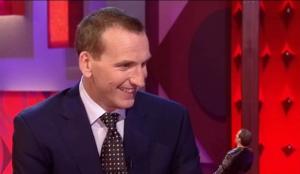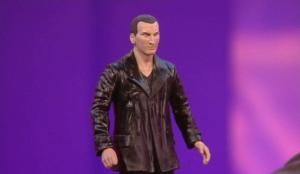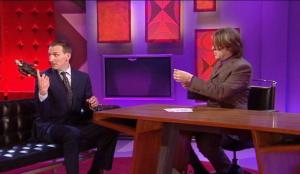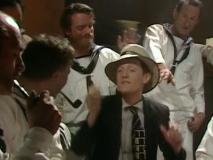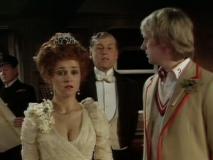
It was ten years ago today, on the
26th March 2005, that
Doctor Who was reborn, in a new century, with a new Doctor, for a new generation.
In 2005 the series had been absent from British television screens for most of the previous fifteen years. "Rested" in 1989, the series was a nostalgic memory to a generation who grew up in the 60's, 70's and 80's. To some it was remembered with derision, talk of shaky sets and implausible monsters was apparent when the series was mentioned. But to others it was remembered with great affection, engendering warm feelings of affection with memories of winter evenings spent in the company of childhood friends.
When the series was dropped from the schedules it had very few friends at the top of the BBC. The series was considered past it, had run its course, and was yesterday's news. Very few thought it would ever return. In 1996 an attempt was made to relaunch the series in America. The 90 minute TV movie made by Fox was reasonably well received, but not successful enough for the producers to commission further episodes. To many this was the final nail in the coffin. The series was dead, it would not return.
But things change and the TV landscape in 2003 was now a very different beast. The team at the top had changed and a new generation had taken over. TV was now being run by the people who had grown up with the first few Doctors. Those who remembered how exciting Saturday evening could be, when the good Doctor would battle enemies on a weekly basis, sandwiched between episodes of
Basil Brush and
The Generation Game. BBC One was now being run by
Lorraine Heggessey, a self confessed fan of the series who had stated publically that she wanted the show back on her network. Many doubted it would happen, but on Friday 26th September 2003 it was confirmed. Doctor Who would
return.
The man entrusted with the regeneration was
Russell T Davies, whose was previously best known for the seminal Channel 4 series
Queer as Folk, about gay life in Manchester. He was joined as Executive producer by
Julie Gardner, who had just returned to the BBC to produce the
David Tennant series
Casanova, following a spell working with Davies at London Weekend Television. Also on the team was
Mal Young, who was best known for producing the Channel 4 soap opera
Brookside. Meanwhile
Linda Green producer
Phil Collinson was
recruited to produce the series.
Once it was known the series was returning, speculation began on just who would play the enigmatic Time Lord.
Paul McGann was a tipped contender, having played the Doctor in the 1996 TV Movie, while William Hill made
Alan Davies the 8-to-1 favourite to win the role.
Richard E. Grant was an option as was
Sean Pertwee, son of the late third Doctor. The Fourth Doctor, Tom Baker
announced to BBC London News that
Eddie Izzard had won the role. According to the
Telegraph Bill Nighy was the choice of Davies and had been offered the role, while the Daily
Mirror said it was EastEnders actor
Shane Richie.
Colin Baker weighed in to
recommend a female Doctor in the form of
Dawn French.
On Friday 19 March 2004 it was announced that acclaimed actor
Christopher Eccleston would take on the role, with Davies telling the press:
We considered many great actors for this wonderful part, but Christopher was our first choice. This man can give the Doctor a wisdom, wit and emotional range as far-reaching as the Doctor's travels in time and space. His casting raises the bar for all of us. It's going to be a magnificent, epic, entertaining journey, and I can't wait to start.
Two months later Eccleston was joined by
Billie Piper who was
cast as Rose Tyler. Piper was best known as the youngest artist ever to debut at number one in the UK singles chart. Over the next few months more respected actors joined the cast,
Noel Clark would play Micky,
Camille Coduri would play Rose's mother while even song and dance man
John Barrowman was rumoured to have signed up.
Old monsters would also be returning, with a very public battle taking place over the use of the Daleks in the new series. An agreement was finally reached in August with the
Terry Nation estate to allow the infamous pepper pots to meet the new Doctor.
The series
launched on BBC One, in ablaze of publicity, on Saturday 26th March. Viewers were warmed up with a preview at 5.25pm when
Doctor Who: A New Dimension gave a taste of the series. After
Strictly Dance Fever with Graham Norton, the British public finally got to meet the new Doctor at 7pm, when
Doctor Who: Rose was screened. A technical error a few minutes into the programme caused audio of Norton to be
overlaid on the episode, much to the distress of the production team.
No one knew if it would succeed. There were many who thought it would fail. But succeed it did. Rose achieved 10.81 million viewers, the seventh most watched programme of the week. A new generation took the Doctor to their hearts and in the intervening years the series has grown into one of the BBC's most valuable assets.
Over the past ten years we have travelled with five new Doctors and enjoyed 97 stories across 117 episodes. The series is now made in specially built studios on Cardiff Bay. We have been to concerts, read books, enjoyed quiz shows and visited exhibitions based on the series. The reborn series celebrated its 50th Anniversary in 2013, with a massive convention in London, and a record breaking simultaneous transmission of the special anniversary episode was watched by millions around the world.
Series 9 is currently being filmed in Cardiff, the 35th since the series began.
The trip is not over, the adventure goes on...
 BBC Sources have indicated that next year's series of Doctor Who, the first with the thirteenth Doctor, will be broadcast in the Autumn of 2018.
BBC Sources have indicated that next year's series of Doctor Who, the first with the thirteenth Doctor, will be broadcast in the Autumn of 2018. 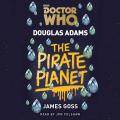
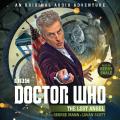
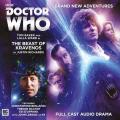
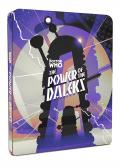


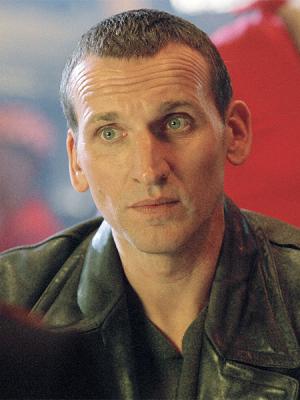

 Fortitude, the psychological thriller television series starring
Fortitude, the psychological thriller television series starring  It was ten years ago today, on the 26th March 2005, that Doctor Who was reborn, in a new century, with a new Doctor, for a new generation.
It was ten years ago today, on the 26th March 2005, that Doctor Who was reborn, in a new century, with a new Doctor, for a new generation. 